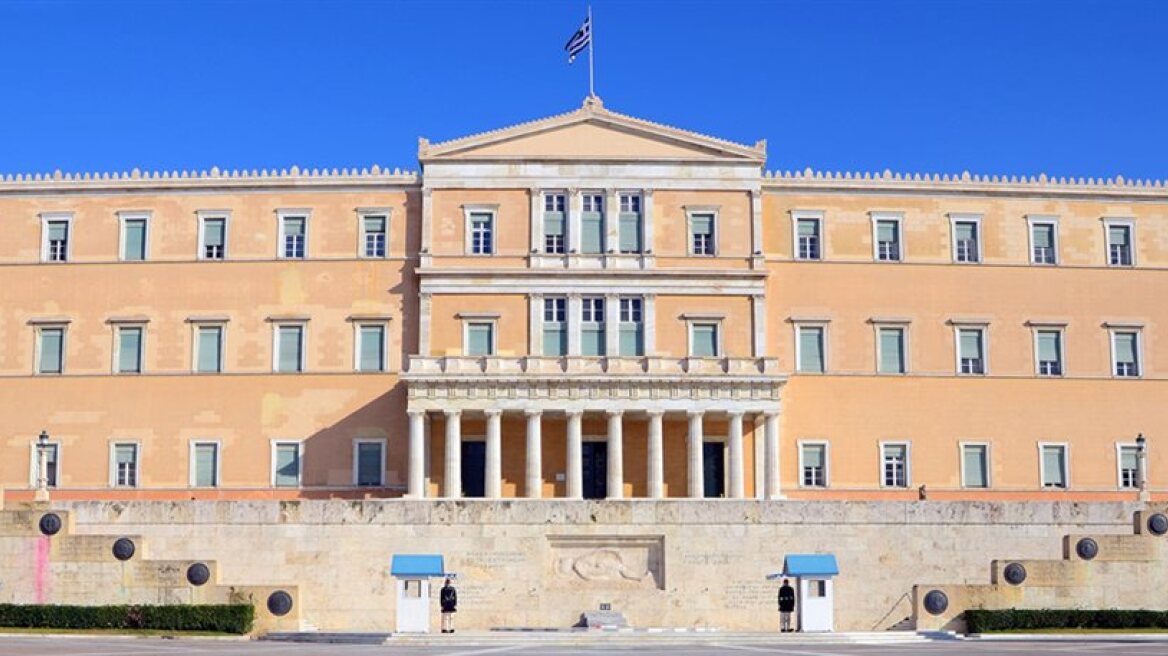
"The issue of Greece's debt is not resolved"
"The issue of Greece's debt is not resolved"
States with a public debt of about 170% are unable to reduce their debts only with national efforts - Should they attempt to do so they would implement a "blind" austerity in the future as well that would worsen the crisis without solving the problem of over-indebtedness," the report says

The members of the State Budget Office in Parliament to monitor the progress of the budget describes the tight fiscal and regulatory framework within which Greece will be called to address the persistent economic and structural problems in an interim report on the new mechanisms of “supervision and solidarity” of the EU after the Memorandum.
The authors highlight the difficulties posed by the amended Stability and Growth Pact, especially for countries like Greece that have a very high debt. In essence they describe the operation of a permanent "European troika" which will approve national budgets, control their execution and enforce measures and sanctions in case of discrepancies. Beyond this, however, they also highlight the capabilities and financial resources of developing countries noting that Greece - under certain conditions - can exploit them. They add that "the country will not be able to utilize these nascent opportunities for loans and assistance if it refuses to respond to the rules and procedures of the new economic governance, and if, in an extreme case, it unilaterally decides to stop servicing its debt."
Blind austerity
The report notes that "the issue of the debt of Greece, Portugal etc. has not been solved. Member-States such as Greece (whose debt remains at the extremely high levels of 170%) do not have the opportunity to reduce their debts to the level required by the new financial rules only with national efforts. Should they attempt to do so they would implement a "blind" austerity in the future as well that would worsen the crisis without solving the problem of over-indebtedness. It makes sense to look for alternatives."
Losses of unilateral actions
Despite the difficulties brought about by the new framework, the report's authors appear optimistic as the give a positive answer to the question "whether our policy could improve in it." They say that the EU system is not only restrictive but also offers opportunities to restructure the productive base of the country, improve its infrastructure, finance extrovert media and stabilize the banking system via the ECB. Concluding, they explain that "the country will not be able to utilize these budding opportunities for loans and assistance if it refuses to respond to the rules and procedures of the new economic governance, and if, in extreme cases, it unilaterally decides to stop servicing its debt,” emphasizing on the commitment of Greece’s partners towards the Greek debt relief under the condition that Greece will fulfill its obligations.
The authors highlight the difficulties posed by the amended Stability and Growth Pact, especially for countries like Greece that have a very high debt. In essence they describe the operation of a permanent "European troika" which will approve national budgets, control their execution and enforce measures and sanctions in case of discrepancies. Beyond this, however, they also highlight the capabilities and financial resources of developing countries noting that Greece - under certain conditions - can exploit them. They add that "the country will not be able to utilize these nascent opportunities for loans and assistance if it refuses to respond to the rules and procedures of the new economic governance, and if, in an extreme case, it unilaterally decides to stop servicing its debt."
Blind austerity
The report notes that "the issue of the debt of Greece, Portugal etc. has not been solved. Member-States such as Greece (whose debt remains at the extremely high levels of 170%) do not have the opportunity to reduce their debts to the level required by the new financial rules only with national efforts. Should they attempt to do so they would implement a "blind" austerity in the future as well that would worsen the crisis without solving the problem of over-indebtedness. It makes sense to look for alternatives."
Losses of unilateral actions
Despite the difficulties brought about by the new framework, the report's authors appear optimistic as the give a positive answer to the question "whether our policy could improve in it." They say that the EU system is not only restrictive but also offers opportunities to restructure the productive base of the country, improve its infrastructure, finance extrovert media and stabilize the banking system via the ECB. Concluding, they explain that "the country will not be able to utilize these budding opportunities for loans and assistance if it refuses to respond to the rules and procedures of the new economic governance, and if, in extreme cases, it unilaterally decides to stop servicing its debt,” emphasizing on the commitment of Greece’s partners towards the Greek debt relief under the condition that Greece will fulfill its obligations.
Ακολουθήστε το protothema.gr στο Google News και μάθετε πρώτοι όλες τις ειδήσεις
Δείτε όλες τις τελευταίες Ειδήσεις από την Ελλάδα και τον Κόσμο, τη στιγμή που συμβαίνουν, στο Protothema.gr
Δείτε όλες τις τελευταίες Ειδήσεις από την Ελλάδα και τον Κόσμο, τη στιγμή που συμβαίνουν, στο Protothema.gr
ΡΟΗ ΕΙΔΗΣΕΩΝ
Ειδήσεις
Δημοφιλή
Σχολιασμένα






































